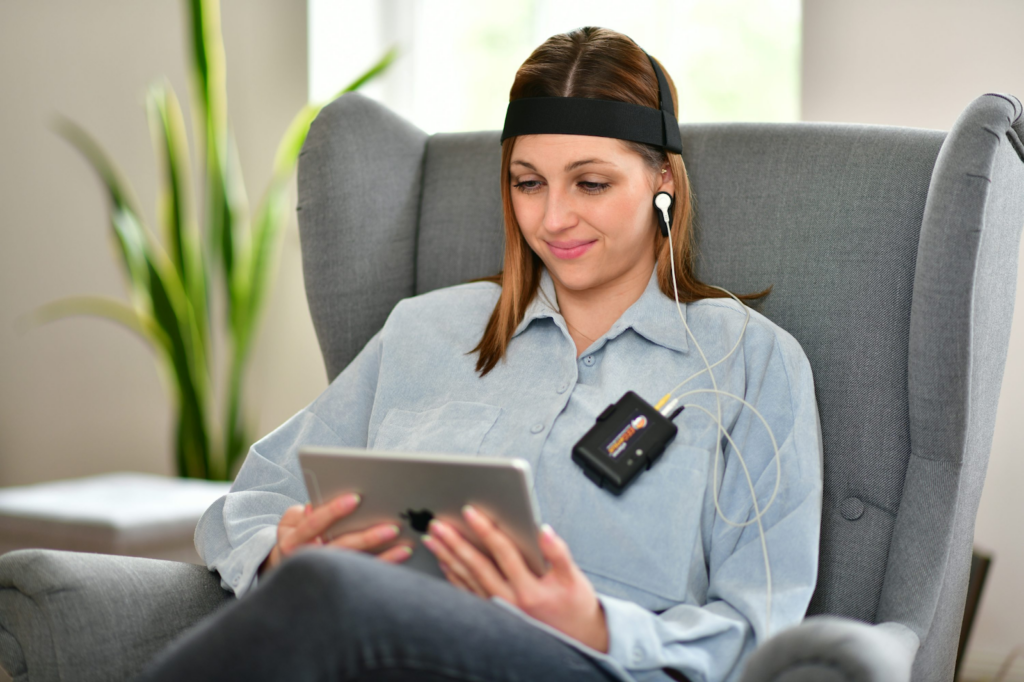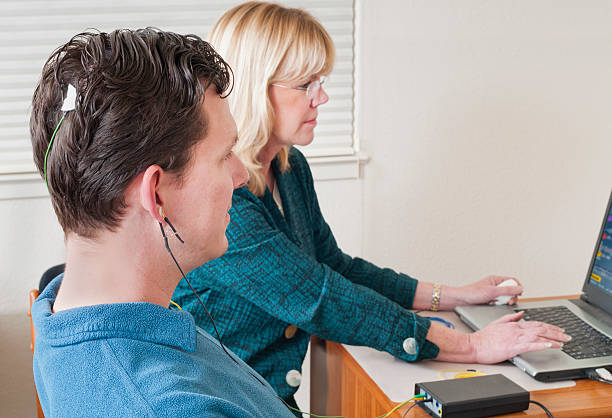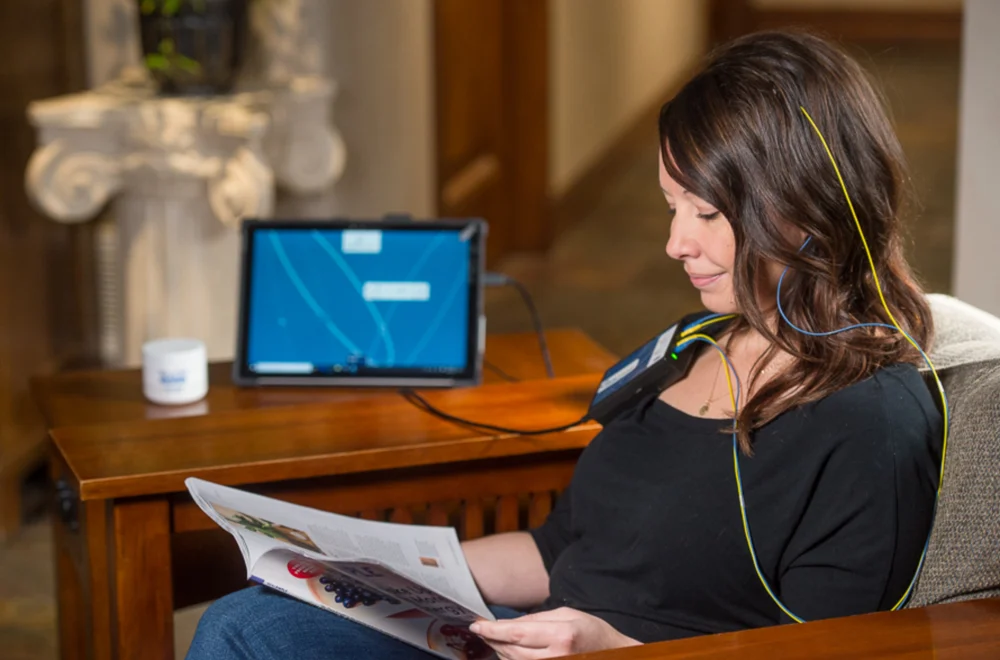
Becoming a neurofeedback and biofeedback practitioner is associated with specific training, certification, and work commitment to helping patients improve their mental and physical health. This career brings science and holistic approaches together to offer diverse options for working in clinical, educational, or research settings. Knowledge of the education, certification, and practical experience needed by prospective practitioners helps them find their way into this demanding yet gratifying profession and make choices that are in line with their professional route.
What education is required to become a neurofeedback and biofeedback practitioner?
To become a neurofeedback and biofeedback practitioner, a foundational education in psychology, neuroscience, or a related health field is essential, usually at the bachelor’s level. Some roles and certifications may require a master’s degree or higher.
Specialized training programs in neurofeedback and biofeedback are basic: these offer hands-on training in technique and equipment. Coursework in brain function, psychophysiology, and applications of these technologies in the therapy context may also be incorporated in such programs.
Upon acquisition of these educational components, the graduate may then pursue professional certification and establish himself/herself in clinical practice. The diploma or degree must be acquired from an approved professional organization training institution, that guarantees quality.
What certification is needed for neurofeedback and biofeedback practitioners?
The certification needed for neurofeedback and biofeedback practitioners is the Biofeedback Certification International Alliance (BCIA) is a leading organization offering certifications in neurofeedback and biofeedback.
This qualification provides use perspective to the candidates who can go for the exams and the training consists of standard training, supervised practice, and the overall certification process of sitting for the exams and passing.
A BCIA Certified practitioner can pursue relevant continuing education courses to maintain active certification. Continuing education of such practitioners will help them make sure that their clients remain healthy through the best and safest clinically tested procedures.

How long does it take to become a neurofeedback and biofeedback practitioner?
The path to becoming a neurofeedback and biofeedback practitioner generally takes 1 to 2 years. This duration includes completing specialized training programs, which often involve coursework, practical experience, and supervised sessions.
For the holders of a profession-related degree, the time frame may be shorter. It will be mostly oriented towards education and certification. The time frame is variable based upon the structure, intensity of the program, and the individual’s ability to complete the necessary certifications which may include the supervised hours provided by the clinics. This way, these practitioners will be able to provide good quality therapy.
What skills are essential for neurofeedback and biofeedback practitioners?
The skills essential for neurofeedback and biofeedback practitioners need a blend of technical and interpersonal skills. Analytical skills are vital for interpreting data from biofeedback equipment and making adjustments to treatment protocols.
Psychophysiology also helps practitioners to put together bodily signals as they relate to mental or emotional states. It is necessary to be skilled in the use of this special equipment for example, neurofeedback people use EEG. In addition to this practical knowledge, patients need practitioners who can also communicate effectively, demonstrate insight, and be practical.
Such qualities help in establishing a trusting relationship with clients, the ability to simplify ideas that are intricate, and leading patients through their therapies. All these skills ensure a holistic approach to the treatment plans of the patients.
Where can one obtain neurofeedback and biofeedback training?
Neurofeedback and biofeedback training can be obtained through accredited institutions like universities, specialized training centers, and online programs. Leading organizations like the BCIA offer approved courses.
The programs of the Biofeedback Certification International Alliance ( BCIA ) list which courses bear the certification requirements, The students will attend those programs that provide complete education, including the theoretical parts on psychophysiology, functioning of the human brain, with the use of biofeedback devices.
One can rarely find some theoretical program that does not emanate from practical training, mostly offered through supervised clinical training or attachments. Some programs, especially, overseas, are interactive and conducted via internet. It is safe to say one need not worry about her the students getting the certificate as long as they choose a valid, accredited program for training.

How do you maintain certification as a neurofeedback and biofeedback practitioner?
To maintain certification as a neurofeedback and biofeedback the practitioners must engage in continuing education. The Biofeedback Certification International Alliance (BCIA) mandates a specific number of continuing education units (CEUs) over a set period.
These CEUs are completed via attending workshops and conferences and taking advanced courses aimed at the understanding of contemporary techniques used in neurofeedback and biofeedback. Seeing that practice is forward looking, gaining new knowledge and understanding through constant research is vital.
You will also often be required to demonstrate compliance with appropriate ethical behavior and appropriate standards of professional practice. A practitioner’s dedication to continued education and the refinement of his skills makes certain that the highest level of care remains in the picture.
What career opportunities are available for certified neurofeedback and biofeedback practitioners?
The career opportunities available for certified neurofeedback and biofeedback practitioners are they can work in private practice, offering personalized therapy to clients. Hospitals and clinics employ practitioners to provide complementary treatments for conditions like anxiety, ADHD, chronic pain, and stress.
So practitioners may be hired in schools for working with students or for biofeedback therapy efficacy studies. There are opportunities for such practitioners in universities or clinics where clinical research is performed to enhance the field.
Moreover, practitioners may also work with psychotherapists, physical therapists, and other health professionals in order to provide integrated care. This variety enhances practitioners in sculpting their career paths in relation to their needs and skills.
Wrapping Up!
A practitioner of neurofeedback and biofeedback intends an education leading to certification, as well as skill-building. This profession equally offers a wide variety where one avails to work in healthcare provision, education, or research managing the mental and physical health of the clients. Practitioners will be able to give good quality services with new information or skills owing to the fact that they are dedicated to further education and skill advancement.
